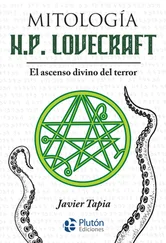It had set down noiselessly next to my mother’s station wagon. The front lights flashed. The back end gave off a red glow. For thirty seconds nothing more happened. But then finally the window of the spaceship slowly retracted to reveal, instead of a Martian inside, Milton. He had shaved off his beard.
“Get your mother,” he called, smiling. “We’re going for a little ride.”
Not a spaceship then, but close: a 1967 Cadillac Fleetwood, as intergalactic a car as Detroit ever produced. (The moon shot was only a year away.) It was as black as space itself and shaped like a rocket lying on its side. The long front end came to a point, like a nose cone, and from there the craft stretched back along the driveway in a long, beautiful, ominously perfect shape. There was a silver multi-chambered grille, as though to filter stardust. Chrome piping, like the housing for circuitry, led from conical yellow turn signals along the rounded sides of the car, all the way to the rear, where the vehicle flared propulsively into jet fins and rocket boosters.
Inside, the Cadillac was as plushly carpeted and softly lit as the bar at the Ritz. The armrests were equipped with ashtrays and cigarette lighters. The interior itself was black leather and gave off a strong new smell. It was like climbing into somebody’s wallet.
We didn’t move right away. We remained parked, as if it were enough just to sit in the car, as if now that we owned it, we could forget about our living room and stay in the driveway every night. Milton started the engine. Keeping the transmission in park, he showed us the marvels. He opened and closed the windows by pressing a button. He locked the doors by pressing another. He buzzed the front seat forward, then tilted it back until I could see the dandruff on his shoulders. By the time he put the car into gear we were all slightly giddy. We drove away down Seminole, past our neighbors’ houses, already saying farewell to Indian Village. At the corner, Milton put the blinker on and it ticked, counting the seconds down to our eventual departure.
The ’67 Fleetwood was my father’s first Cadillac, but there were many more to come. Over the next seven years, Milton traded up almost every year, so it’s possible for me to chart my life in relation to the styling features of his long line of Cadillacs. When tail fins disappeared, I was nine; when power antennas arrived, eleven. My emotional life accords with the designs, too. In the sixties, when Cadillacs were futuristically self-assured, I was also self-confident and forward-looking. In the gas-short seventies, however, when the manufacturer came out with the unfortunate Seville—a car that looked as though it had been rear-ended—I also felt misshapen. Pick a year and I’ll tell you what car we had. 1970: the cola-colored Eldorado. 1971: the red sedan DeVille. 1972: the golden Fleetwood with the passenger sun visor that opened up into a starlet’s dressing room mirror (in which Tessie checked her makeup and I my first blemishes). 1973: the long, black, dome-roofed Fleetwood that made other cars stop, thinking a funeral was passing. 1974: the canary-yellow, two-door “Florida Special” with white vinyl top, sunroof, and tan leather seats that my mother is still driving today, almost thirty years later.
But in 1967 it was the space-age Fleetwood. Once we got going the required speed, Milton said, “Okay. Now get a load of this.” He flipped a switch under the dash. There was a hissing sound, like balloons inflating. Slowly, as if lifted on a magic carpet, the four of us rose to the upper reaches of the car’s interior.
“That’s what they call the ‘Air-Ride.’ Brand-new feature. Smooth, huh?”
“Is it some kind of hydraulic suspension system?” Chapter Eleven wanted to know.
“I think so.”
“Maybe I won’t have to use my pillow when I drive,” said Tessie.
For a moment after that, none of us spoke. We were headed east, out of Detroit, literally floating on air.
Which brings me to the second part of our upward mobility. Shortly after the riots, like many other white Detroiters, my parents began looking for a house in the suburbs. The suburb they had their sights on was the affluent lakefront district of the auto magnates: Grosse Pointe.
It was much harder than they ever expected. In the Cadillac, scouting the five Grosse Pointes (the Park, the City, the Farms, the Woods, the Shores), my parents saw for sale signs on many lawns. But when they stopped in at the realty offices and filled out applications, they found that the houses suddenly went off the market, or were sold, or doubled in price.
After two months of searching, Milton was down to his last real estate agent, a Miss Jane Marsh of Great Lakes Realty. He had her—and some growing suspicions.
“This property is rather eccentric,” Miss Marsh is telling Milton one September afternoon as she leads him up the driveway. “It takes a buyer with a little vision.” She opens the front door and leads him inside. “But it does have quite a pedigree. It was designed by Hudson Clark.” She waits for recognition. “Of the Prairie School?”
Milton nods, dubiously. He swivels his head, looking over the place. He hadn’t much cared for the picture Miss Marsh had shown him over at the office. Too boxy-looking. Too modern.
“I’m not sure my wife would go for this kind of thing, Miss Marsh.”
“I’m afraid we don’t have anything more traditional to show at the moment.”
She leads him along a spare white hallway and down a small flight of open stairs. And now, as they step into the sunken living room, Miss Marsh’s head begins to swivel, too. Smiling a polite smile that reveals a rabbity expanse of upper gum, she examines Milton’s complexion, his hair, his shoes. She glances at his real estate application again.
“Stephanides. What kind of name is that?”
“It’s Greek.”
“Greek. How interesting.”
More upper gum flashes as Miss Marsh makes a notation on her pad. Then she resumes the tour: “Sunken living room. Greenhouse adjoining the dining area. And, as you can see, the house is well supplied with windows.”
“It pretty much is a window, Miss Marsh.” Milton moves closer to the glass and examines the backyard. Meanwhile, a few feet behind, Miss Marsh examines Milton.
“May I ask what business you’re in, Mr. Stephanides?”
“The restaurant business.”
Another mark of pen on pad. “Can I tell you what churches we have in the area? What denomination are you?”
“I don’t go in for that sort of thing. My wife takes the kids to the Greek church.”
“She’s a Grecian, too?”
“She’s a Detroiter. We’re both East Siders.”
“And you need space for your two children, is that right?”
“Yes, ma’am. Plus we have my folks living with us, too.”
“Oh, I see.” And now pink gums disappear as Miss Marsh begins to add it all up. Let’s see. Southern Mediterranean. One point. Not in one of the professions. One point. Religion? Greek church. That’s some kind of Catholic, isn’t it? So there’s another point there. And he has his parents living with him! Two more points! Which makes—five! Oh, that won’t do. That won’t do at all.
To explain Miss Marsh’s arithmetic: back in those days, the real estate agents in Grosse Pointe evaluated prospective buyers by something called the Point System. (Milton wasn’t the only one who worried about the neighborhood going to hell.) No one spoke of it openly. Realtors only mentioned “community standards” and selling to “the right sort of people.” Now that white flight had begun, the Point System was more important than ever. You didn’t want what was happening in Detroit to happen out here.
Discreetly, Miss Marsh now draws a tiny “5” next to “Stephanides” and circles it. As she does so, however, she feels something. A kind of regret. The Point System isn’t her idea, after all. It was in place long before she came to Grosse Pointe from Wichita, where her father works as a butcher. But there is nothing she can do. Yes, Miss Marsh feels sorry. I mean, really. Look at this house! Who’s going to buy it if not an Italian or a Greek. I’ll never be able to sell it. Never!
Читать дальше
Конец ознакомительного отрывка
Купить книгу












